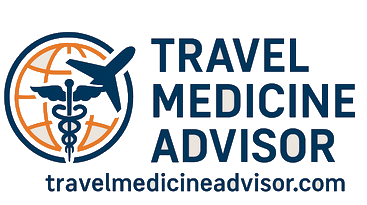What Vaccination Isn’t Required Before Travel
Planning international travel? While most trips don’t require specific vaccinations, certain destinations and health situations may change that. Learn which vaccines are generally not required, like cholera (except for aid workers or those with limited access to medical care), and which ones, like Hepatitis A & B, are often recommended. Discover how to assess your personal risk based on your health and destination, and understand the importance of consulting your doctor for a personalized travel health plan. Don’t risk your health abroad – read on to prepare for a safe and healthy journey.
Important information

- Cholera vaccination is generally not required for most travelers but is recommended for aid workers or those traveling to areas with limited medical access.
- Consult your doctor or a travel medicine specialist before any international travel to discuss recommended vaccinations based on your health, destination, and itinerary.
- Research your destination’s health advisories and entry requirements, as some countries may require proof of vaccination or negative test results.
- Vaccinations for Hepatitis A & B, Japanese Encephalitis, and Rabies may be recommended depending on your travel plans.
- Traveling unvaccinated has health risks. Ensure you understand potential diseases at your destination and consider travel insurance that covers medical evacuations and overseas treatment.
What Vaccination Isn’t Required Before Travel?
Cholera vaccination is not typically advised for travelers, but it’s recommended for aid workers or individuals expecting limited access to medical care. This ensures protection, even in challenging situations.
Vaccinations Generally Not Required for Most Travelers
While most travelers don’t require vaccinations, certain destinations or activities might suggest otherwise. Cholera vaccination is rarely necessary, but hepatitis A and B are often recommended. Depending on your itinerary, your doctor may also suggest Japanese encephalitis or rabies vaccines. Discuss your specific travel plans with your physician for personalized recommendations.
Cholera Vaccination
A cholera vaccine isn’t necessary for most travelers. It’s recommended for aid workers and those venturing into areas with limited medical care, such as remote regions where treatment access might be challenging.
Japanese Encephalitis Vaccination
A Japanese encephalitis vaccination is recommended if you’re planning an extended trip to a region where the disease poses a risk.
Rabies Vaccination
A rabies vaccine isn’t necessary for most trips, but it’s recommended for travel to high-risk areas, especially if you anticipate interacting with animals. Consult your doctor to assess your individual risk and determine if the vaccine is advisable before your departure.
Traveling Without Mandatory Vaccines: Considerations and Risks
Traveling without necessary vaccinations poses significant health risks. Consult your doctor to assess your vulnerabilities based on your health status and travel destination. In regions with prevalent diseases, unvaccinated travelers are particularly susceptible to illness. Careful planning is essential, so research health advisories for your destination and take appropriate precautions.
Consult your doctor. Assess your specific vulnerabilities based on your health and destination.
Research health advisories. Understand the prevalence and potential complications of diseases at your destination.
Consider travel insurance. Ensure it covers medical evacuations and overseas treatment—a vital safeguard for unvaccinated travelers.
Falling ill abroad can lead to extended recovery times. Understanding the prevalence and potential complications of diseases at your destination is crucial.
Consulting Healthcare Professionals
Planning your trip? Consult a healthcare professional for a personalized travel health plan. This plan considers your health, destination, and potential risks. Consultations are crucial for determining necessary vaccinations and preventative measures, such as malaria medication. They can also advise you on managing pre-existing conditions while abroad, ensuring a safe and healthy journey.
Assessing Health Issues and Risks
Prioritize your health when planning a trip. Research potential health risks at your destination, such as cholera, hepatitis A, typhoid, and rabies. Consulting your doctor is essential for personalized advice tailored to your medical history and your itinerary. This pre-travel consultation is key for a safe and healthy journey.
Planning for Unvaccinated Travelers
Traveling unvaccinated poses health risks. Before your trip, consult a doctor or travel medicine specialist and research your destination’s health guidelines. Official resources, like government health websites and travel clinics, provide crucial, up-to-date information on required and recommended vaccinations. Also, stay informed about travel advisories to protect yourself and ensure a safe trip.
Entry Requirements and Travel Eligibility Without Vaccination
Before your trip, review the following health requirements for your destination:
Some destinations require proof of vaccination or an exemption, depending on their health regulations.
Unvaccinated travelers should check state regulations and testing requirements, as these may affect entry eligibility.
Review international travel guidelines before your trip.
Proof of Immunization and Exemptions
Some destinations offer vaccination exemptions with valid medical documentation. However, many countries require proof of vaccination for entry, following public health recommendations. Always verify the specific requirements before your trip.
State Mandates and Testing Requirements
To ensure a smooth trip, be prepared with the necessary travel documents. Some states require specific paperwork, and you may also need a pre-entry test for certain destinations. Check the specific regulations for your destination beforehand.
Public Health Guidelines for International Travel
Traveling abroad is exciting, but it’s crucial to be aware of potential health risks. Public health guidelines help mitigate these concerns. For vaccination requirements, consult these resources:
- your local health department,
- a travel clinic,
- official government websites.
These sources offer current information on required and recommended vaccinations. By staying informed and planning ahead, you can protect your health and ensure a safe and enjoyable trip.


















